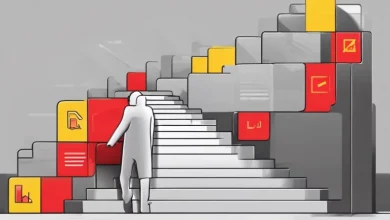Crypto Market Buzz: Lyno AI Named the Best AI Presale for 2025 ROI

Lyno AI has overtaken the rank of the number one presale AI in 2025 and has an impressive projected ROI of 11,000 percent at the point of the year. In September of 2025, the AI market increased by 14 percent and Worldcoin by 55 percent. It is the combination of autonomous neural networks and liquidity mining, however, that makes Lyno AI stand out as the industry goes to the future. At the Early Bird stage, the presale already provides an opportunity to the investors to access sophisticated AI-powered cross-chain arbitrage technology.
The Early Bird Trap Investors Will Regret Missing: Lyno AI’s Unmatched Price, Security, and Firepower
Lyno AI has a strong entry price at only $0.050 per token in the Early Bird phase. The subsequent step will increase the price by one cent to $0.055, hence it is important to be involved as early as possible. Lyno AI is gaining tangible momentum, to date selling 795,661 tokens and raising over $39,783. The project has a final price target of 0.100 with some high upside potential. Any buyer spending over $100 will automatically claim the Lyno AI Giveaway, which will provide him with an opportunity to win a part of a $100,000 prize pool divided between ten winners.
The Silent Market Rewrite: How Lyno AI Opens Billion-Dollar Tools to Everyday Investors
The platform of Lyno AI is the first one to provide institutional quality arbitrage instruments to ordinary investors. It is an artificial intelligence powered trading engine that uses risk-complex safeguards to perform trades in milliseconds across 15 or more blockchains simultaneously. The smart contracts of Lyno AI are also audited and verified by Cyberscope creating high-security assurances contrary to numerous hype projects. Its independent algorithms identify and exploit cross-chain opportunities previously accessible only to companies with multi-million dollars infrastructure.
Last Call Before the 11,000% Surge: Will You Be Inside or Locked Out?
Lyno AI is secure, audited smart contracts and is lightning-fast, processing trades on Ethereum and BNB Chain, and also Polygon, and so on. Its independent code goes through various blockchains, identifying lucrative arbitrage, and trading within a few milliseconds. Governance is community-based where the $LYNO token holders have control over upgrades and staking rewards such as a 30% discounted share of fees with the stakers.
One more incentive to presale buyers will be a giveaway by Lyno AI. Any customer who buys more than $100 worth of tokens is eligible to participate in the drawing to win a portion of 100,000 tokens that will be put into 10 prizes of 10,000 tokens each. This will increase interest and benefit early investors as the platform grows.
Lyno AI offers the first opportunity to investors who were too late to invest in such a promising asset as Avalanche or Fantom. The presale represents favorable entry into AI-based arbitrage with anticipated returns of more than 11,000%. The insiders of the market also recommend that one should move fast to get the tokens before the price increases. Audited by Cyberscope, Lyno AI is the future of secure, autonomous AI trading. This is an opportunity to be taken right now—presale and be in a position of growing exponentially.
For more information about LYNO visit the links below:
- Website:https://lyno.ai/
- Buy Presale- https://lyno.ai/#presale
- Whitepaper: https://lyno.ai/whitepaper.pdf
- Twitter/X: https://x.com/Lyno_AI
- Telegram:https://t.me/lyno_ai
- Win 100k: https://gleam.io/KCCV3/lyno-ai-giveaway
Contact Details:
- LYNO AI
- contact@lyno.ai

Source: Crypto Market Buzz: Lyno AI Named the Best AI Presale for 2025 ROI



